A member of parliament (MP) is the representative in parliament of the people who live in their electoral district. In many countries with bicameral parliaments, this term refers only to members of the lower house since upper house members often have a different title. The terms congressman/congresswoman or deputy are equivalent terms used in other jurisdictions. The term parliamentarian is also sometimes used for members of parliament, but this may also be used to refer to unelected government officials with specific roles in a parliament and other expert advisers on parliamentary procedure such as the Senate parliamentarian in the United States. The term is also used to the characteristic of performing the duties of a member of a legislature, for example: "The two party leaders often disagreed on issues, but both were excellent parliamentarians and cooperated to get many good things done."
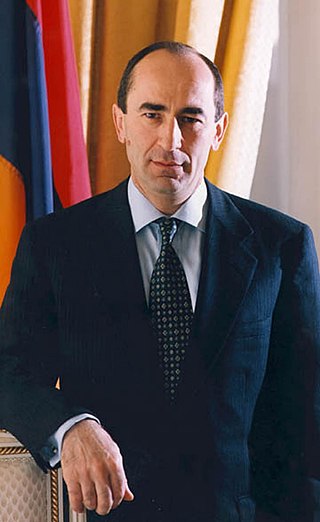
Robert Sedraki Kocharyan is an Armenian politician. He served as the President of the Nagorno-Karabakh Republic from 1994 to 1997 and Prime Minister of Nagorno-Karabakh from 1992 to 1994. He served as the second President of Armenia between 1998 and 2008 and as Prime Minister of Armenia from 1997 to 1998.
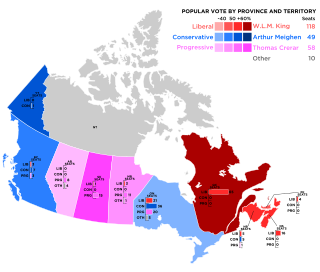
The 1921 Canadian federal election was held on December 6, 1921, to elect members of the House of Commons of Canada of the 14th Parliament of Canada. The Union government that had governed Canada through the First World War was defeated, and replaced by a Liberal government under the young leader William Lyon Mackenzie King. A new third party, the Progressive Party, won the second most seats in the election.

The prime minister of Armenia is the head of government and most senior minister within the Armenian government, and is required by the constitution to "determine the main directions of policy of the Government, manage the activities of the Government and coordinate the work of the members of the Government." Also, according to the constitution, the prime minister heads the Security Council, which prescribes the main directions of the country's defense policy; thus, the prime minister is effectively the commander-in-chief of the Armed Forces of Armenia. Under the new 2015 constitution, the prime minister is the most powerful and influential person in Armenian politics. The prime minister is appointed by the president of Armenia upon the vote of the National Assembly. The prime minister can be removed by a vote of no confidence in Parliament. In the constitutional referendum held in 2015, citizens voted in favor of transferring Armenia into a parliamentary republic.

Levon Hakobi Ter-Petrosyan, also known by his initials LTP, is an Armenian politician and historian who served as the first president of Armenia from 1991 until his resignation in 1998.
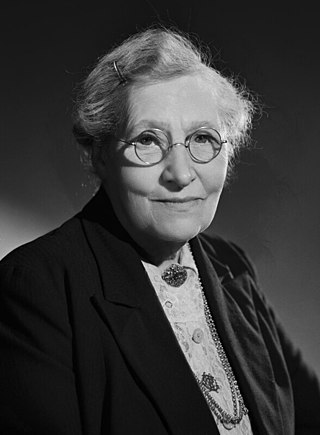
Caroline Selina Ganley, CBE, JP was an English Labour and Co-operative Party politician.
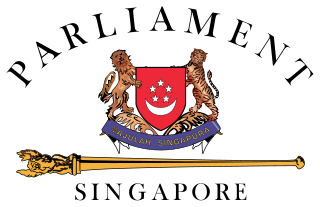
The Parliament of Singapore is the unicameral legislature of the Republic of Singapore, which governs the country alongside the president of Singapore. Largely based upon the Westminster system, the Parliament is made up of Members of Parliament (MPs) who are elected, as well as Non-constituency Members of Parliament (NCMPs) and Nominated Members of Parliament (NMPs) who are appointed. Following the 2020 general election, 93 MPs and two NCMPs from three political parties were elected to the 14th Parliament. Throughout the sitting of Parliament, nine NMPs are usually appointed by the president on a biennial basis.

Aram Manukian, was an Armenian revolutionary, statesman, and a leading member of the Armenian Revolutionary Federation (Dashnaktsutyun) party. He is widely regarded as the founder of the First Republic of Armenia.
Manukyan, Manoukyan and Manukian and Western Armenian alternative transliterations Manougian, Manuguian and Manoogian (Western Armenian: Մանուկեան is an Armenian surname. It is derived from the Armenian given name Manuk, Manug, Manoug meaning a child and the addition of yan/ian for a surname.

Vazgen Mikayeli Manukyan is an Armenian politician who served as the first Prime Minister of Armenia from 1990 to 1991. From 1992 to 1993, during the First Nagorno-Karabakh War, Manukyan was acting Defence Minister of Armenia. He was also a member of Armenia's parliament from 1990 to 2007.
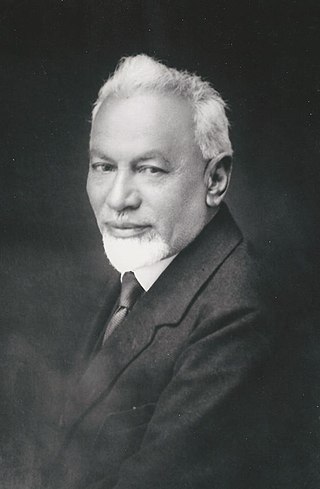
Avetik Hovhannesi Sahakian, also known as Father Abraham, was an Armenian politician, the Parliamentary President (speaker) of the First Republic of Armenia in 1918–19, the social security minister and member of ARF Dashnaktsutiun Eastern Bureau. He was also known as agricultural scientist.

Helene Weber was a German politician and was known as a women's rights activist. In the Weimar Republic she rose to prominence in the Catholic Centre Party. In 1945 she was among the founders of the Christian Democratic Union (CDU). In 1948 she was a co-founder of the CDU Women's Task Force, a precursor of the party's Women's Union, which she chaired from 1951 to 1958. Weber is one of four women who, alongside 61 men, drafted Germany's constitution, the Basic Law, in 1948-49. After initial hesitation, she closed ranks with the women delegates of the Social Democratic Party to successfully fight for the inclusion of the sentence "Men and women shall have equal rights" in Article 3 of the Basic Law. She is often cited for her anti-war statement: "The entirely male-run state is the ruin of nations".
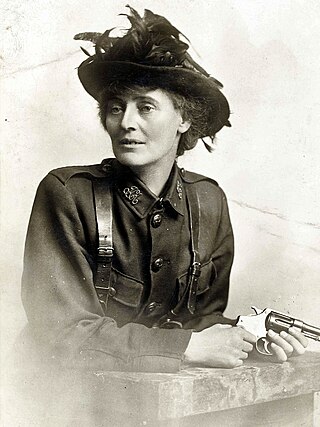
The representation of women in the House of Commons of the United Kingdom has been an issue in the politics of the United Kingdom at numerous points in the 20th and 21st centuries. Originally debate centred on whether women should be allowed to vote and stand for election as Members of Parliament. The Parliament Act 1918 gave women over 21 the right to stand for election as a Member of Parliament. The United Kingdom has had three female Prime Ministers: Margaret Thatcher (1979–1990), Theresa May (2016–2019), and Liz Truss (2022). The publication of the book Women in the House by Elizabeth Vallance in 1979 highlighted the under-representation of women in Parliament. In more modern times concerns about the under-representation of women led the Labour Party to introduce and, decades later, abandon all-women short lists, something which was later held to breach discrimination laws.
Presidential elections were held in Armenia on 22 September 1996. The result was a victory for Levon Ter-Petrosyan, who received 51% of the vote. Turnout was 60%.

Women in Armenia have had equal rights, including the right to vote, since the establishment of the First Republic of Armenia. On June 21 and 23, 1919, the first direct parliamentary elections were held in Armenia under universal suffrage - every person over the age of 20 had the right to vote regardless of gender, ethnicity or religious beliefs. The 80-seat legislature, charged with setting the foundation for an Armenian state, contained three women deputies: Katarine Zalyan-Manukyan, Perchuhi Partizpanyan-Barseghyan and Varvara Sahakyan.
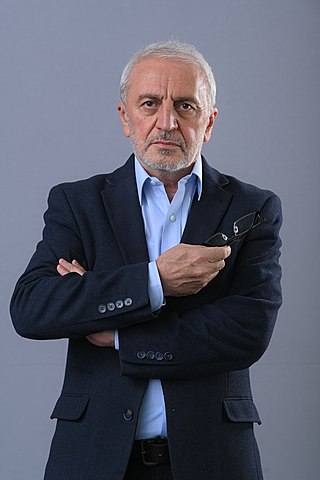
Aram Manukyan is an Armenian politician.

Perchuhi Partizpanyan-Barseghyan was an Armenian pedagog, writer and humanitarian worker. She was one of the first three women elected to serve as a member of the parliament with the formation of the First Republic of Armenia in 1919. After the fall of the republic, she briefly relocated to Bulgaria, before continuing her literary career in Paris. She received recognition for her short stories from the American anthologist, Edward J. O'Brien. She worked in the Nansen International Office for Refugees in Paris trying to assist Armenians who had been affected by the Armenian genocide.

Varvara Sahakyan was an Armenian politician. In 1919 she was elected to parliament, becoming one of the first three female MPs in the country.

The 2020−2021 Armenian protests were a series of protests that began following the Nagorno-Karabakh ceasefire agreement on 10 November 2020. After Prime Minister Nikol Pashinyan announced that he signed an agreement to cede Armenian-occupied territories in Azerbaijan and put an end to six weeks of hostilities over the Nagorno-Karabakh region, thousands of people took to the streets, and hundreds stormed the Parliament building in the capital Yerevan. Protests continued throughout November, with demonstrations in Yerevan and other cities demanding the resignation of Nikol Pashinyan.
Ursula Schleicher is a German Christian Social Union in Bavaria politician and harpist who served two terms in the Bundestag from 1972 to 1980 and five terms in the European Parliament between 1979 and 2004. She served as state chair of the Paneuropean Union in Bavaria between 1988 and 1994 before becoming its deputy federal chair in 1995 and was a Vice-President of the European Parliament from 1994 to 1999. Schleicher was appointed Commander of the Order of Merit of the Italian Republic, the Bavarian Order of Merit and the Grand Cross of Merit of the Order of Merit of the Federal Republic of Germany in 2001.
















